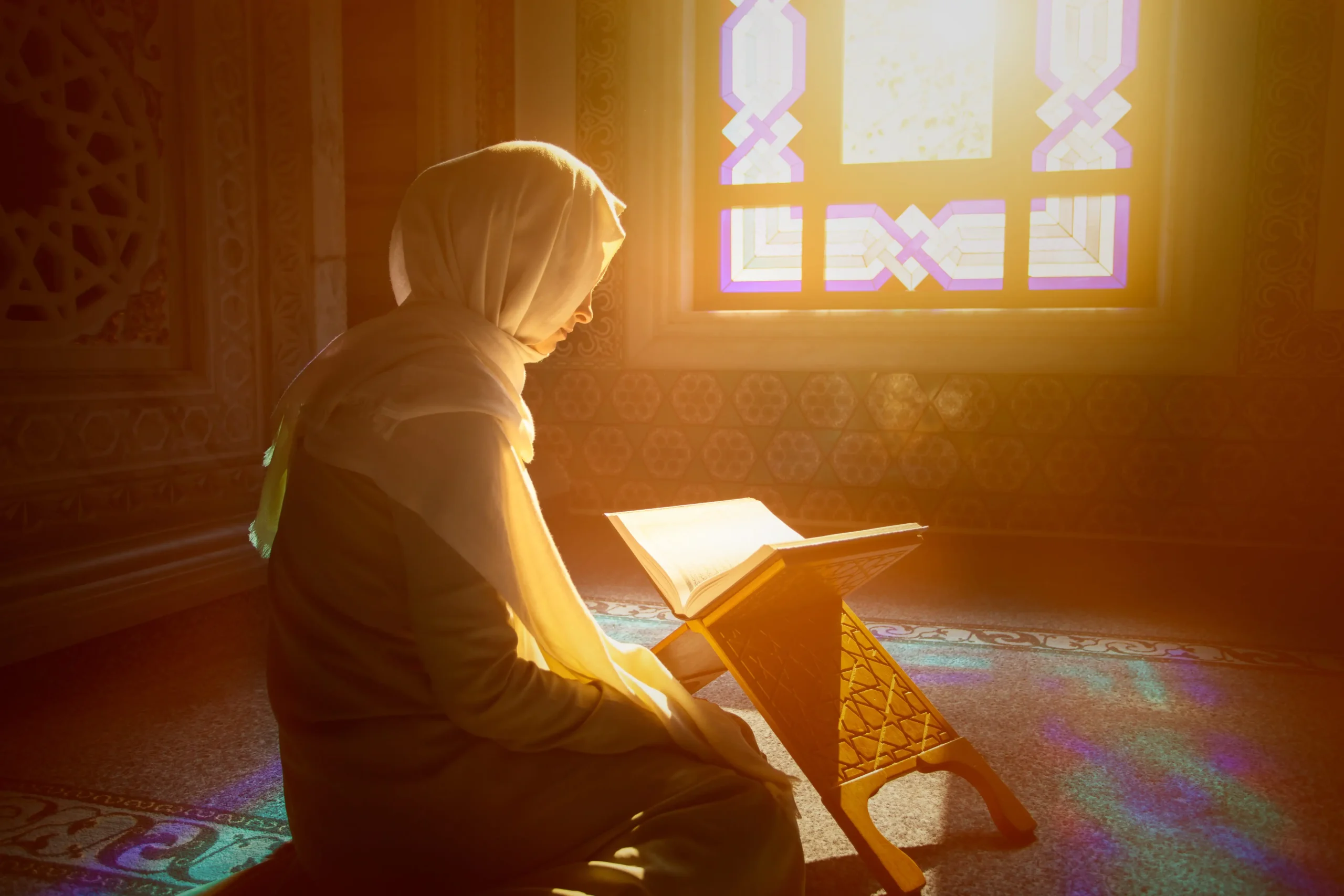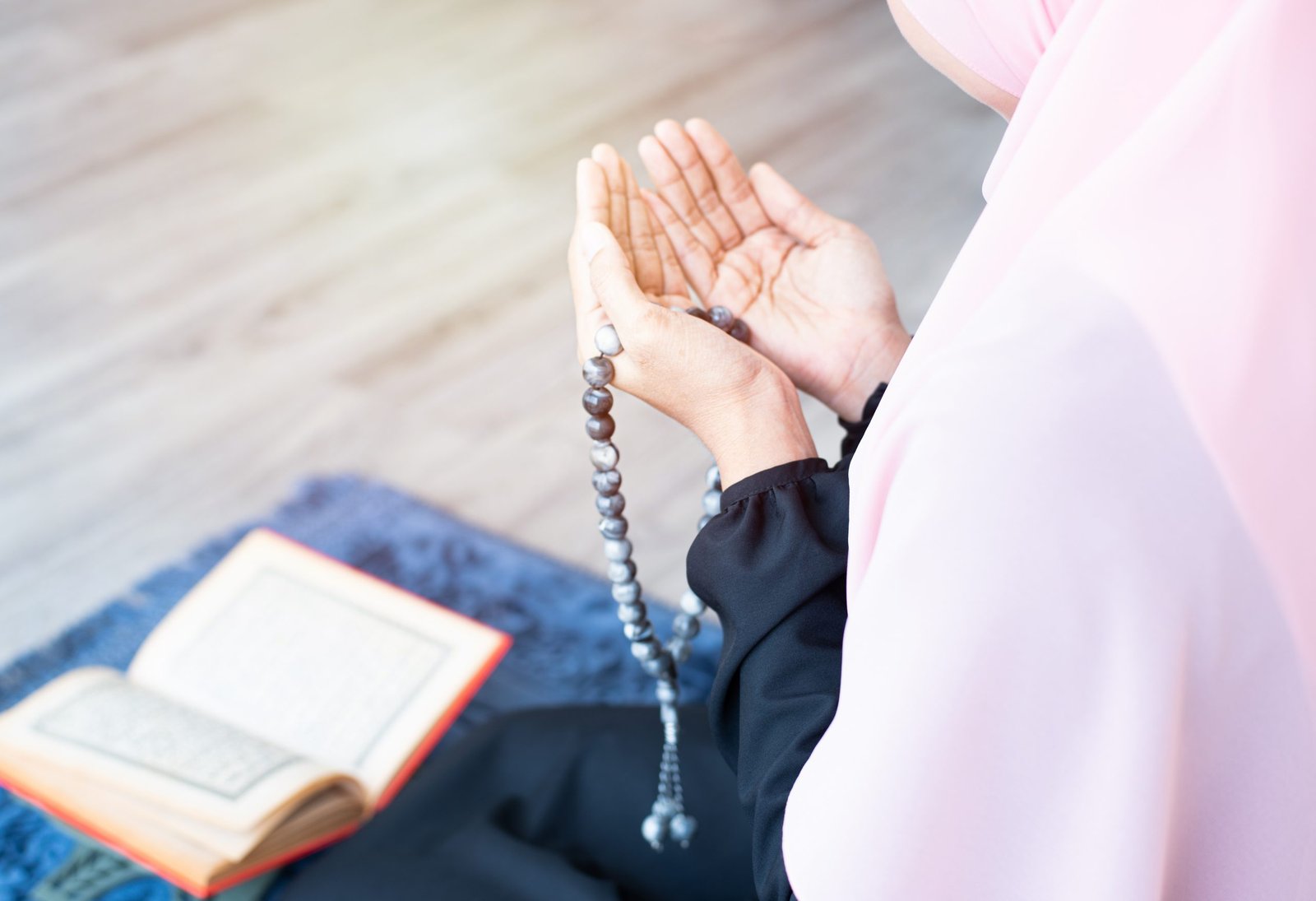After how many days of period can you pray in Islam?” is a question frequently asked by many Muslim girls, In Islam, the period of menstruation is a natural phase for women during which they are excused from certain religious duties, such as prayer and fasting, a woman resumes her prayers after the bleeding stops and the prescribed period of purification ends, typically between 6 to 10 days, this time is considered a period of mercy and ease in Islamic law, providing women with an opportunity to rest and recover.
After How many days of period can you pray in Islam?

In Islam, menstruation is a natural period during which women are exempt from specific religious duties, like prayer and fasting, During this time, women are not required to perform their daily prayers or fast during Ramadan, After the bleeding stops and the woman completes the required purification process, she can resume her prayers.
Understanding the specific duration of the menstruation period and the purification process is essential, “After how many days of period can you pray in Islam?” is a common question asked by many Muslim girls and women aiming to meet their religious duties correctly, Islamic teachings offer clear instructions on this topic, ensuring women know their responsibilities and can practice their faith without confusion.
The purification process, called ghusl, is crucial for a woman to restore her state of ritual cleanliness and This involves a full-body wash that symbolizes both spiritual and physical purity, Once this ritual is completed, a woman is considered pure and can resume her religious practices, including prayer, Addressing the question, “After how many days of period can you pray in Islam?” helps spread accurate knowledge and support women in their spiritual path.
Read about: Why can’t Muslim woman pray on their period
How to Pray After Your Period in Islam?

In Islam, after a woman finishes her menstrual period, she must perform a ritual purification called ghusl before she can resume her prayers, , The process begins with making the intention (niyyah) for purification, She then washes her hands and private parts, performs a complete ablution (wudu) like for prayer, and ensures water reaches all parts of her body, including hair and skin.
Once the ghusl is completed, she is considered pure and can resume her daily prayers and other religious activities, Understanding how to pray after your period in Islam is important for maintaining spiritual and physical cleanliness, allowing women to fully participate in their religious duties, “After how many days of period can you pray in Islam?” is a common question that helps in disseminating accurate knowledge and supporting women in their spiritual journey.
How to Make the Most of Your Period in Islam?

In Islam, menstruation is not merely a biological process but holds significant spiritual and practical considerations for women, due to the natural state of impurity associated with menstruation, Despite these exemptions, Islam encourages women to utilize this period productively in various ways.
- Firstly, women are encouraged to engage in dhikr (remembrance of Allah) and dua (supplication) during their menstrual cycle, This spiritual practice allows women to maintain their connection with Allah and seek spiritual growth even while abstaining from formal prayers, reciting Quranic verses and reflecting on their meanings also serves as a means of spiritual nourishment during this time.
- Secondly, menstruation offers women an opportunity for physical and emotional rest. The hormonal changes and physical discomfort associated with menstruation can be taxing, and Islam acknowledges the importance of self-care and rest during this period. Taking care of one’s health, practicing relaxation techniques, and engaging in activities that promote well-being are highly encouraged.
- Furthermore, educating oneself about Islamic teachings related to menstruation and purification (taharah) is essential. Understanding the rulings and guidelines regarding ghusl (ritual purification) and the exact duration of menstruation ensures that women can fulfill their religious duties correctly and confidently.
- Engaging in acts of kindness, charity, and learning during menstruation are also commendable in Islam. Supporting others, studying religious texts or beneficial knowledge, and participating in community activities contribute positively to personal development and spiritual fulfillment.
Read about: Is Allah Omnipresent?
Can you pray after 5 days of period?
In Islam, once a woman’s menstrual period ends, she must complete a ritual purification known as ghusl before she can resume her prayers. After how many days of period can you pray in Islam? The duration of menstruation varies among women but typically lasts between 3 to 7 days. After the bleeding stops, a woman must ensure she is free from any discharge before performing ghusl. Once ghusl is performed correctly, she can immediately resume her prayers and other religious activities. It’s important for women to adhere to these guidelines to maintain ritual purity and fulfill their religious duties properly in Islam.
Can you pray on your period Islam?
In Islam, menstruation is considered a period of natural impurity for women, during which certain religious practices, such as daily prayers and fasting, are suspended. This allowance recognizes the physical and hormonal changes women experience during menstruation. While women are exempt from formal prayer and fasting during their periods, they are encouraged to maintain spiritual connection through other acts like supplication (du’a) and remembrance of Allah (dhikr). Once menstruation ends and a woman completes ritual purification (ghusl), she can resume her prayers and other religious obligations. This approach ensures that women can observe their faith consistently while respecting the religious guidelines that prioritize cleanliness and spiritual devotion in Islam.
Conclusion of After How many days of period can you pray in Islam
Islamic teachings regarding menstruation and purification aim to provide precise guidance for women to maintain their spiritual and physical purity. After how many days of period can you pray in Islam? Alongside instructions for ritual purification and resumption of prayers and fasting after menstruation, this approach empowers women to practice their worship with confidence and continuity. After how many days of period can you pray in Islam? This is in accordance with religious teachings that emphasize cleanliness and spiritual purity in Islam.
FAQS
How Many Days of Period Can You Pray in Islam?
In Islam, after how many days of period can you pray in islam? Menstruation typically lasts between 3 to 7 days., During this time, women are excused from performing their daily prayers due to the state of impurity associated with menstruation, Once the bleeding stops and the woman completes the ritual purification (ghusl), she can resume her prayers
After menstruation ends and ritual purification (ghusl) is performed, when can I start praying? Women can immediately begin performing their prayers, This ritual purification is essential to regain spiritual cleanliness and resume religious practices in Islam.
How many days count for periods in Islam?
The duration of menstruation in Islam, how many days after period? It varies from woman to woman but typically spans between 3 to 7 days. This period is considered a natural part of a woman’s cycle, during which certain religious obligations, like daily prayers, are temporarily exempted.
How many days after your period can you fast in Islam?
After how many days of period can you pray in Islam for fasting? Once menstruation ends and ritual purification (ghusl) is completed, fasting can be resumed immediately, This allows women to participate fully in religious activities such as fasting during Ramadan or other voluntary fasts prescribed by Islam.
Can I read namaz after 10 days of period?
After how many days of period can you pray in Islam, can I read namaz after 10 days? Yes, in Islam, women can resume performing namaz (prayer) immediately after completing their menstrual period and performing ghusl, regardless of the duration, provided they are no longer experiencing any menstrual discharge.
Is It Possible to Pray After Your Period?
After how many days of period can you pray in Islam, is it possible to pray after your period? Yes, it is possible to resume praying after the menstrual period ends and ritual purification (ghusl) is performed, This practice ensures that women can maintain their spiritual connection and fulfill their religious obligations in accordance with Islamic teachings.
Read About:
20 Benefits of Fasting and Prayer
